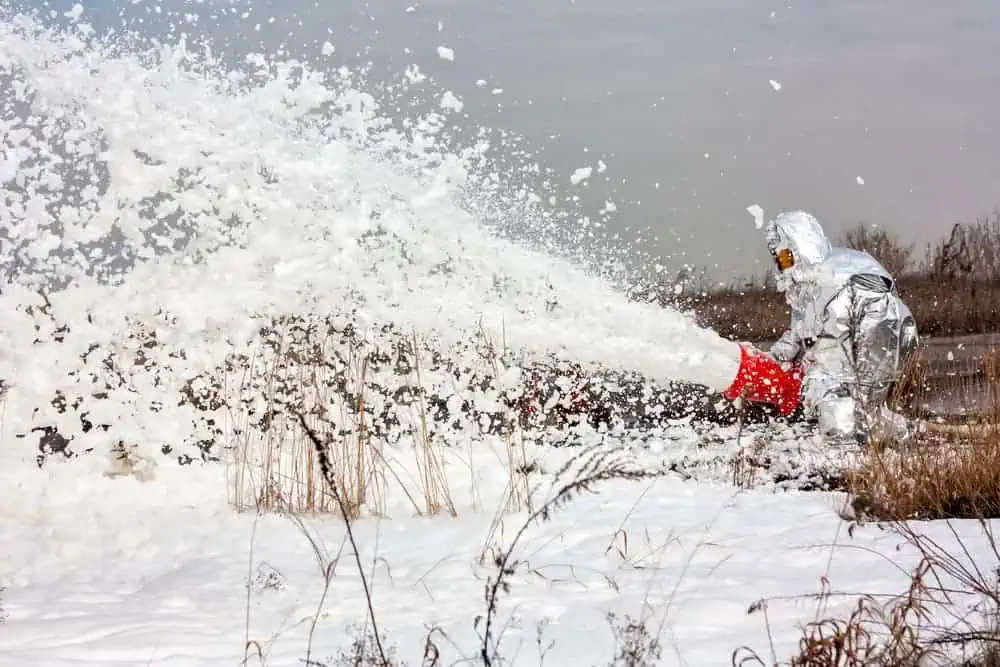Where Are PFAS Found?
- Last Updated: July 27th, 2023

Attorney Jessica Paluch-Hoerman, founder of TruLaw, has over 28 years of experience as a personal injury and mass tort attorney, and previously worked as an international tax attorney at Deloitte. Jessie collaborates with attorneys nationwide — enabling her to share reliable, up-to-date legal information with our readers.
Legally Reviewed
This article has been written and reviewed for legal accuracy and clarity by the team of writers and legal experts at TruLaw and is as accurate as possible. This content should not be taken as legal advice from an attorney. If you would like to learn more about our owner and experienced injury lawyer, Jessie Paluch, you can do so here.
Fact-Checked
TruLaw does everything possible to make sure the information in this article is up to date and accurate. If you need specific legal advice about your case, contact us by using the chat on the bottom of this page. This article should not be taken as advice from an attorney.
Where Are PFAS Found?
Per- and Polyfluoroalkyl Substances (PFAS) are synthetic chemicals that have been used in many global industries since the late 1940s.
Because they are uniquely capable of repelling both oil and water, they are highly valued for use in many products and purposes.
However, in recent decades, it has become clear that PFAS chemicals present serious challenges for both the environment and human health.
Because they are composed of carbon-fluoride bonds, which are the strongest bonds in nature, they take an incredibly long time to break down in the environment.
For this reason, they are widely referred to as “forever chemicals.”
Furthermore, the Centers for Disease Control (CDC) has noted that there are a host of scientific studies suggesting that exposure to PFAS can lead to serious human health risks.
These include heightened cholesterol, liver damage, pregnancy risks, birth defects, and increased risks of kidney and testicular cancer.
For this reason, it is worth knowing the specific places that PFAS chemicals can be found and understanding what the risks of exposure are.
Products Containing PFAS
The repellant and other properties of PFAS chemicals make them useful in various products.
These include:
- Firefighting foam – One type of foam that firefighters use in their work is aqueous film-forming foam (AFFF). These foam formulations, which are made with PFAS chemicals, are incredibly effective at extinguishing fires that are otherwise difficult to suppress. The fact that PFAS are capable of repelling both water and oil makes them especially useful for fighting Class B fires that involve flammable liquids such as petroleum.
- Stain-repellent and water-repellent coatings and fabrics – One of the first PFAS products to be created was the 3M Company’s Scotchgard, which is a coating used to make fabrics stain- and water-resistant.
- Food packaging materials – The packaging of many food products is manufactured with PFAS to make them grease-resistant. This includes fast-food wrappers and containers, pizza boxes, candy wrappers, and microwave popcorn bags.
- Nonstick cookware – The nonstick surfaces of Teflon pans and other similar products are effective due to the fact that they are made with PFAS.
- Personal care products and cosmetics – Many products that most people use on a daily basis, such as several types of shampoo, dental floss, nail polish, lipstick, and eye makeup all contain PFAS that get absorbed directly through the skin.

These are just a few of the products that contain PFAS chemicals.
It is important to note, however, that the primary concern for many scientists is the fact that the manufacture of these products has led to high levels of PFAS ending up in all parts of the environment and even in our own bloodstreams.
Table of Contents
Which Aspects of the Environment Are Subject to PFAS Pollution?
The Environmental Protection Agency (EPA) notes that, due to the incredibly slow rate at which PFAS chemicals break down over time, they are found just about everywhere in all parts of the world.
The EPA and other advocacy groups have listed several specific areas of concern:
- Water – The EPA’s risk assessments have singled out drinking water contamination as a primary concern. There is currently no federal maximum contamination level for PFAS under the Safe Drinking Water Act, although some states (such as Michigan) have begun enacting their own legislation in this regard.
- Air – Recent studies have suggested that many people are exposed to unhealthy levels of PFAS via the air they breathe, particularly in some indoor settings.
- Fish – According to the National Wildlife Federation, the levels of PFAS found in fish in many areas have become so high that they are unsuitable for human consumption. This is due to the contamination of the water in which the fish are found.
- Soil – Scientists have discovered that PFAS are present in soils across the globe. The levels are high even in many areas that are far away from sites that manufacture or utilize PFAS chemicals. This is a cause for concern because it means that vegetation that grows in these soils will contain PFAS as well.
How Do I Avoid PFAS Exposure?

Unfortunately, it is unlikely that anyone will be able to completely eliminate their exposure to PFAS.
This is because it is present at low levels in many foods and in many aspects of the environment.
Check with your local health department to see if you live in an area where the drinking water is contaminated above safe levels.
If so, find an alternate source of water for drinking, cooking, brushing your teeth, or other activities in which there is a chance you might swallow water.
Similarly, check with your local health department for any fish advisories in your area and avoid eating fish that may be contaminated.
TruLaw is committed to helping those who have suffered due to PFAS chemicals in firefighting gear.
If you have been affected, you may be entitled to compensation.
To see if you may be eligible for a Firefighter gear case today, visit our Firefighter Gear Instant Case Evaluator.

Managing Attorney & Owner
With over 25 years of legal experience, Jessica Paluch-Hoerman is an Illinois lawyer, a CPA, and a mother of three. She spent the first decade of her career working as an international tax attorney at Deloitte.
In 2009, Jessie co-founded her own law firm with her husband – which has scaled to over 30 employees since its conception.
In 2016, Jessie founded TruLaw, which allows her to collaborate with attorneys and legal experts across the United States on a daily basis. This hypervaluable network of experts is what enables her to share the most reliable, accurate, and up-to-date legal information with our readers!
Here, at TruLaw, we’re committed to helping victims get the justice they deserve.
Alongside our partner law firms, we have successfully collected over $3 Billion in verdicts and settlements on behalf of injured individuals.
Would you like our help?
At TruLaw, we fiercely combat corporations that endanger individuals’ well-being. If you’ve suffered injuries and believe these well-funded entities should be held accountable, we’re here for you.
With TruLaw, you gain access to successful and seasoned lawyers who maximize your chances of success. Our lawyers invest in you—they do not receive a dime until your lawsuit reaches a successful resolution!
AFFF Lawsuit claims are being filed against manufacturers of aqueous film-forming foam (AFFF), commonly used in firefighting.
Claims allege that companies such as 3M, DuPont, and Tyco Fire Products failed to adequately warn users about the potential dangers of AFFF exposure — including increased risks of various cancers and diseases.
Depo Provera Lawsuit claims are being filed by individuals who allege they developed meningioma (a type of brain tumor) after receiving Depo-Provera birth control injections.
A 2024 study found that women using Depo-Provera for at least 1 year are five times more likely to develop meningioma brain tumors compared to those not using the drug.
Suboxone Tooth Decay Lawsuit claims are being filed against Indivior, the manufacturer of Suboxone, a medication used to treat opioid addiction.
Claims allege that Indivior failed to adequately warn users about the potential dangers of severe tooth decay and dental injuries associated with Suboxone’s sublingual film version.
Social Media Harm Lawsuits are being filed against social media companies for allegedly causing mental health issues in children and teens.
Claims allege that companies like Meta, Google, ByteDance, and Snap designed addictive platforms that led to anxiety, depression, and other mental health issues without adequately warning users or parents.
Transvaginal Mesh Lawsuits are being filed against manufacturers of transvaginal mesh products used to treat pelvic organ prolapse (POP) and stress urinary incontinence (SUI).
Claims allege that companies like Ethicon, C.R. Bard, and Boston Scientific failed to adequately warn about potential dangers — including erosion, pain, and infection.
Bair Hugger Warming Blanket Lawsuits involve claims against 3M — alleging their surgical warming blankets caused severe infections and complications (particularly in hip and knee replacement surgeries).
Plaintiffs claim 3M failed to warn about potential risks — despite knowing about increased risk of deep joint infections since 2011.
Baby Formula NEC Lawsuit claims are being filed against manufacturers of cow’s milk-based baby formula products.
Claims allege that companies like Abbott Laboratories (Similac) and Mead Johnson & Company (Enfamil) failed to warn about the increased risk of necrotizing enterocolitis (NEC) in premature infants.
Here, at TruLaw, we’re committed to helping victims get the justice they deserve.
Alongside our partner law firms, we have successfully collected over $3 Billion in verdicts and settlements on behalf of injured individuals.
Would you like our help?












